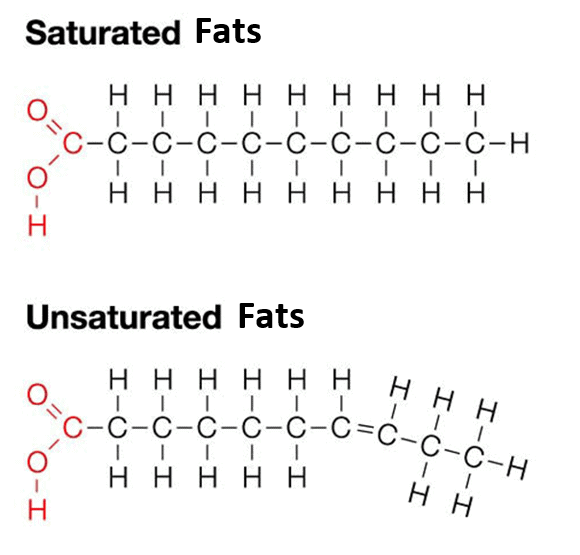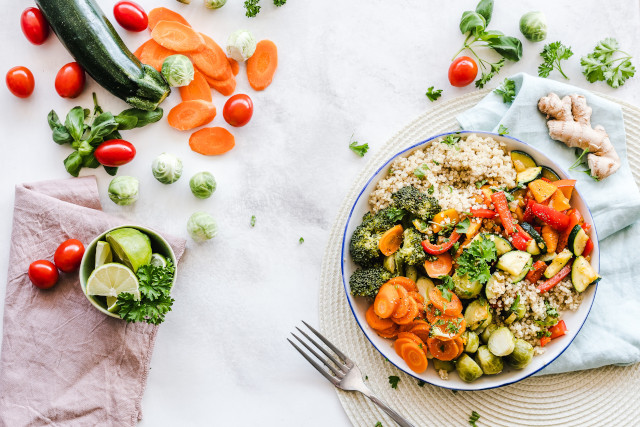
Coconut oil has been called a “superfood” with positive effects on heart and brain health, weight loss (especially abdominal fat) and a whole host and anti-inflammatory effects.
But is coconut oil really a superfood? Or is it just the newest fad out there on the internet?
Contents
Coconuts
Coconuts have traditionally been the main staple food in many Asian and Pacific populations. In those same populations, coconut has also long been used as a medicine to treat infections, respiratory conditions, constipation, diarrhea, indigestion, kidney stones, and other disorders.
Coconut meat (the whitish flakes) is high in fiber, protein, minerals such as manganese, selenium and iron and contains Vitamin C and B vitamins along with plant sterols. Coconut meat is also high in calories from fats—the fats are primarily the saturated fats along with high amounts of omega-6 fatty acids. Coconut flour is the finely ground coconut meat.
Coconut milk (pressed from coconut meat) is similar to coconut meat as far as its nutritional profile—it is high in fiber, protein, richer than coconut meat in minerals such as iron, calcium, magnesium, phosphorus, zinc, copper, manganese and selenium and contains Vitamins C, E and B vitamins. Coconut milk is also high in plant sterols and calories from fats. These fats are also in the saturated form with high levels of omega-6 fatty acids. Coconut water is diluted coconut milk and is much lower in calories.
Finally, coconut oil is very high in calories from saturated fats and omega-6 fatty acids with essentially no vitamins, minerals, protein or fiber—in other words, pure fat. The fats in coconut oil are in the form of medium-chain triacylglycerols, or MCT.
Fats and Health
For many years, fats in food were considered the main cause for fats on the body. This, as it turns out, is an overly simplistic way of looking at this major nutritional category. Not all fats are created equal—and there are different types of fats—there are animal fats, plant fats, saturated and unsaturated fats—and then there are the fatty acids, lipids and sterols.
Saturated versus Unsaturated

Monounsaturated fats have a single double bond while polyunsaturated fats have more than one double bond. Monounsaturated fats are found in olive oil, avocados, many nut oils and tree nuts. The polyunsaturated fats are the omega-3 and omega-6 fatty acids found in fish oil, flax oil and most seed oils.
In general, many physicians and nutritionists recommend against eating saturated fats because these fats were associated with cell membrane problems and with increased risk of atherosclerosis (hardening of the arteries). However—and this is important—these effects are for the most part associated with animal fats and not with plant fats. Humans have eaten animal products including animal fat for all of time…but, for most of human existence, this meat was wild game and NOT animals fed corn and other products that was not their natural food (which is grass) and these animals were not very high in fat because they were active rather than being penned in.
In general (again), the mono- or polyunsaturated fats are recommended because they allow flexibility in cell membranes and are associated with better health. However—again—it appears that the ratio of the polyunsaturated fats is critical because the omega-3 fatty acids are associated with ANTI-inflammatory properties while the omega-6 fatty acids are associated with PRO-inflammatory properties. While we hear so often to increase the amount of omega-3 fatty acids in our diet, that is NOT because there is something inherently “bad” about the omega-6 fatty acids—its just that the omega-6 fats are very easy to get—they are found in every plant we eat. In addition, they are not “bad” because they tend to be pro-inflammatory. Our immune system use inflammation to perform its function. The problem is the ratio—if we get too much omega-6 as compared to omega-3, this supports inflammation—omega-3 is recommended to support anti-inflammation. It is estimated that ancient humans ate roughly a 1:1 ratio of omega-3 and omega-6 fats. Today, it is estimated to be that some of us take in up to 20 times as much omega-6 and omega-3![1]
Its always about balance—too much of a good thing is not always a good thing. Consider sugar in diabetes—sugar in the form of glucose provides the main energy source for our cells. That is a good thing. But, too much sugar causes inflammation and can be destructive. That doesn’t mean you never eat sugar—it means that you have to balance it. Essentially the same situation exists with fats….balance is the word of the day!
What are the Benefits of Coconut Products, Especially for People with Diabetes?
So, are there any benefits of coconut products with their high fat content for people with diabetes? After all, there are populations in the South Pacific who get over 60% of their calories from coconuts and have very little evidence of heart disease or diabetes.[2]
Coconut Oil:
Coconut oil contains MCTs. These have been associated with some weight loss, but not a terribly significant amount. In one study, coconut oil users lost an average of 7 pounds after 4 months.[3] Coconut oil may also help improve cholesterol levels, increasing the HDL cholesterol (which is good) and lowering the LDL cholesterol (which is also good). [4] This study also indicated that coconut oil can help decrease abdominal fat—and THAT is strongly associated with an increased risk of heart disease. Coconut oil is also associated with slowing down the progression of Alzheimer’s disease.
A recent review, specifically looking at coconut oil and diabetes concluded that while the MCTs in coconut oil are directly absorbed by the intestines and go directly to the liver and used as a source of energy by that organ, there were not enough human studies available to make any recommendations. In rat studies, where the diabetes is induced, however, the MCTs can improve insulin resistance and improve the actions of insulin.[5]
Coconut Meat and Coconut Flour
Coconut meat and four contains high amounts of fiber—and can lower the glycemic index and glycemic load of foods where coconut meat is added or from foods baked with coconut flour.[6]
Coconut Water
Coconut water is generally not recommended for people with diabetes— coconut water contains high levels of potassium that can cause high levels of potassium in the blood, a condition called hyperkalemia—this recommendation, however is based on the experience of one patient who drank 1 liter of coconut water every day for a prolonged period of time.[7]
Any Conclusions?
So there are some points in favor of using coconut in your diet. The high fiber and low glycemic load of coconut meat is a big plus and using coconut oil in baking and cooking has some good evidence of providing benefit, though you have to take into account the high caloric value of coconut oil. The current thinking about saturated fats from plant sources appears to be changing somewhat—they do not appear to be related to an increased risk of heart disease and may actually help prevent heart disease. The studies around coconut and diabetes are still in their infancy, with the exception of the lower glycemic index of coconut meat and coconut flour. The best advice at this point is to include coconut oil and coconut meat or flour with moderation—2-3 times a week, but keep track of calories and see how well it works for you.
A few things to remember when you are using coconut oil:[8]
- Make certain the oil you purchase is virgin (preferably organic) coconut oil—do NOT buy any coconut oil that has been processed. This processing can produce high levels of trans fats and those are definitely not healthy
- Do not use high heat when cooking with coconut oil—this leads to a breakdown of the oil and decreased health benefits.
Coconut is a superfood and I highly recommend it for the reasons stated above.
If you have any experience with high coconut diets let us know down below.
TheDiabetesCouncil Article | Reviewed by Dr. Christine Traxler MD on June 10, 2020
References
- http://scialert.net/abstract/?doi=ijbc.0000.76877.76877
- http://ajcn.nutrition.org/content/34/8/1552.short
- http://www.eatingwell.com/nutrition_health/nutrition_news_information/can_coconut_oil_help_you_lose_weight%20
- http://www.ncbi.nlm.nih.gov/pubmed/19437058
- 2.Medium-chain fatty acids: Functional lipids for the prevention and treatment ofthe metabolic syndrome, Koji Nagao, Teruyoshi Yanagita. Laboratory of Nutrition Biochemistry, Department of Applied Biochemistry and Food Science, Saga University, Honjo-1, Saga 840-8502, Japan, accessed 12 September 2014.
- http://www.eatingwell.com/nutrition_health/nutrition_news_information/health_benefits_of_coconut_coconut_oil_coconut_milk_coconut_water_coconut_flour?page=5
- http://onlinelibrary.wiley.com/doi/10.1002/pdi.2009/abstract;jsessionid=22F37660414590F7CC244F654D238A8D.f04t02?userIsAuthenticated=false&deniedAccessCustomisedMessage=
- http://www.nutrition411.com/articles/coconut-oil-great-debate/page/0/1





